SYNOPSIS:
As Grace heads off to college and experiences a lifestyle far different than the one she had brought up under her grandmother’s strict hand, she begins a traumatic downward spiral that threatens her sanity. The more she explores the true nature of her nightmares and black outs, the more it becomes clear that an outside, supernatural force is responsible.
REVIEW:
Grace the Possession is a remarkable, bold horror film attempting to explore the demonic possession of its title character entirely through her own POV. “Through the eyes of the possessed” the trailer promises and the film delivers. While it has a found footage feel, it is not that kind of film. It is less like the “A Ride in the Park” found footage segment by Eduardo Sanchez from VHS 2 and more like the extraordinary “Unearthed” segment from ABCs of Death by Ben Wheatley. After a brief prologue setting up the circumstances of Grace’s history, the film quickly establishes the audience is viewing the film through Grace’s eyes only seeing the character in mirrors and reflections. The story is exclusively told within events that directly involve the main character. The script faces the challenges of the restrictive narrative intelligently and with seemingly little effort. Alexia Fast stars as Grace providing mostly narration but appears in many of the establishing scenes as she looks at herself. The film also dives into the character’s nightmare with the same POV providing the film’s more frightening and disturbing visuals. Even though the film struggles with its own gimmick, a gimmick that often reminds the viewer of the constraint of the POV, it succeeds in giving horror fans a unique looks into what would otherwise be a standard possession film.
The story for Grace the Possession travels the well worn tropes of most any possession film from Exorcist to The Last Exorcism. But this film is uniquely centered on its main character and the possession of Grace, told exclusively through her eyes and her experiences. Grace, finally venturing out into the world without the constant tutelage of her grandmother who raised her under a strict religious roof, finds herself facing temptation after temptation, especially those of desire and lust. These are temptations she is ill equipped to handle. Grace begins to experience unexplainable black outs and nightmares as well as a rash on her stomach. After collapsing at a frat party, her grandmother removes her from school and returns Grace to her home. The more she learns about her mother’s past, the more the nightmares take over until she snaps and the evil takes over with only her priest, Luke the deacon and an exorcist to save her soul.
Many viewers of Grace the Possession will lump the film in with the flock of found footage films that assault the VOD, DVD and Netflix queues of horror fans across the globe. It is not found footage but it shares many of the same issues, problems and benefits. Visually, the eyes of the character take the place of the camera which removes the need to establish where the camera is and who is holding it. Still, Director Jeff Chan is forced to establish that we are seeing it from Grace’s point of view, even to the extent that the camera moves into that constraint visually during the prologue. It similarly forces the cinematographer to light everything and the director to stage everything from a specific view point removing the benefit of multiple cuts or establishing shots. It, like found footage, challenges the framework of cinema and setting up a story. With Grace the Possession, the POV shots provide a unique vantage point for experiencing the tale it tells and especially effective during the many nightmare sequences. Unfortunately, it also means the viewer is likely to be pulled out of the story when the constraints of the technique work against the film. It also often feels like the film is only telling a small portion of the story. At the same time it delivers the punches at the end when Grace becomes a witness to her own actions as they are being directed by the demon possessing her. Success or fail, Grace the Possession is worth watching to determine its feel, tone and approach.
The film is greatly supported by the actors involved. Alexia Fast, Joel David Moore and the fantastic Lin Shaye lead the cast. Alexia Fast place Grace whom the viewer sees primarily in reflections and shots of her hands and feet. She also narrates the film with her dialog. She is quite effective in this role entirely presenting the character without being on screen but always present. Lin Shaye is a treat as Grace’s grandmother, Helen. She is controlling and maniacally religious, obviously unhinged and still recovering from the loss of her daughter, Grace’s mother, all those years ago. She is nearly as frightening in her Margaret White inspired role as the possession itself. Terrific! Joel David Moore handles the complexities of the deacon trying to help Grace while facing her advances and flirtations. His sincerity shines through and he stands out during the film’s climax.
Director Jeff Chan handles the film with style and imagination. The film exceeds the typical look and feel of many low budget found footage films. Visually the film appears as one that should have been release theatrically. Chan’s strength in this feature is in his composition. He sets up the shots to take full advantage of the POV design. Even when the characters are confined to the front seat of a car, each is presented in full view of the shot making the POV style as transparent as possible. This reinforces the POV approach to the storytelling for Grace the Possession. He presents the nightmare sequences and the final exorcism sequence with exceptional skill and style. When everything hits the fan, Chan takes great care to ensure what needs to be included to convey the entire surroundings of the horror and chaos appear on screen even if only seen through the eyes of the possessed. His style allows the film to be a fascinating spin on the girl possessed by the devil motif resulting in an entertaining and curious film.
But the big question remains: does a POV horror film work in feature length form? For the most part it does, it plays out like a found footage film where the footage comes directly from the character instead of a camera. The drawback is that it limits the origin of the visual scope of storytelling to one single source. And that wears thin from time to time. Any action or drama that happens out of Grace’s view is simply not seen and often never heard. It does manage to place the viewer directly into the story in a unique way and provides a welcomed spin to the well worn exorcism film tropes. But it also feels like an odd video game where the viewer is being drawn through his or her own story but with no ability to control what is going on or make decisions. It is a tough balance to keep in check, director Jeff Chan and the cast keep things lively and interesting enough to pull back the veil enough to enjoy the story and the film itself. It also makes it difficult to forget you are watching a film when it slows down too much. Still, Grace the Possession comes recommended, but more for the experiment than the story or horror or scares.
3.5 out of 5
 Horror News | HNN Official Site | Horror Movies,Trailers, Reviews
Horror News | HNN Official Site | Horror Movies,Trailers, Reviews
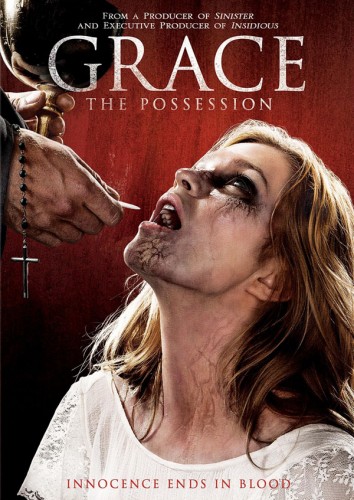
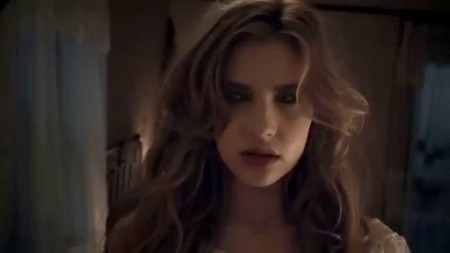

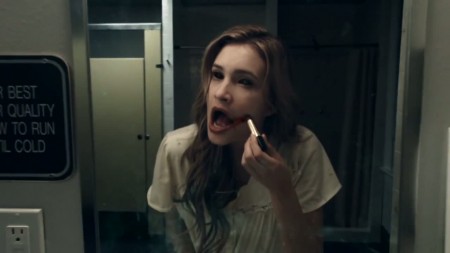


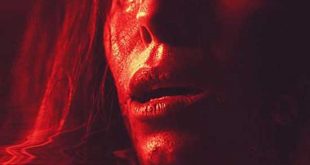
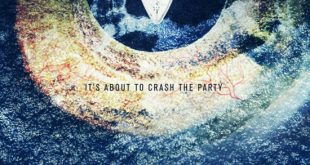

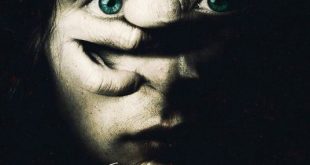
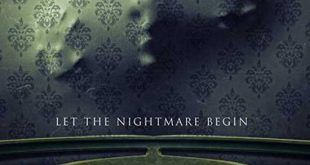

Unwatchable should be the name of this movie which is an example of torture film making directed at anyone unlucky enough to actually see it. Please in the name of god spare us any future movies directed and acted by this group of connected brats. What on earth possessed you into thinking that you could actually make a watchable, plot driven film? You need to do anything else but make movies as childish and amateurish as this complete waste of time.
Watched the movie, and I say it’s quite good.
I agree with you giving the rating of 3.5 out of 5. My girlfriend couldnt watch it as the first person view made her very dizzy, but I personally enjoy the story. It made me feel that the “village” she live in was full of religious fanatics and whether it was all just psychology problem, but it was soon revealed in the end. Very well done.